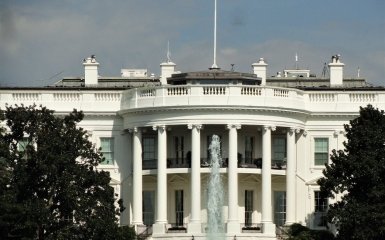Republicans insist that additional funding for Ukraine must be accompanied by major changes in US border security.
The White House wants a bipartisan deal
The White House will increase its engagement with U.S. lawmakers to forge a bipartisan deal that would provide military aid to Ukraine and Israel while strengthening U.S. border security.
This was reported by Democratic Senator Chris Murphy, the leading negotiator from the Democratic Party, quoted by Reuters.
Republicans insist that significant changes in U.S. border security must accompany additional funding for Ukraine.
A bipartisan group of senators trying to find a compromise made little progress less than a week before the U.S. Congress goes on Christmas break.
The White House is going to be more proactive this week, Senator Chris Murphy said on NBC News.
He said knowing if Joe Biden would sign any promising deal was essential.
According to Murphy, the current demands of Republicans on border security are unreasonable, and the Republican Party is "playing games with the security of the world" by linking military aid to U.S. border security measures.
In October, the White House asked Congress to approve a request for $106 billion in additional funding, arguing that it "advances our national security and supports our allies and partners."
According to sources, the Biden administration is considering concessions on migration policy to secure new aid for Ukraine and Israel in the supplemental funding bill.
Why support of Ukraine is essential for the U.S.
If the U.S. stops supporting Ukraine and the Russian dictator Vladimir Putin finds himself on NATO's borders, the Americans will have to pay for it in blood. This is the opinion of the Coordinator of the National Security Council of the White House, John Kirby.
During the briefing, Kirby noted that the President of the Russian Federation, Vladimir Putin, "counts on the fact that the United States will stop supporting Ukraine, and this will be a "great gift" for him."
If he gets Ukraine, he will stand right on NATO's doorstep. And as I said the other day, if you think support for Ukraine is high right now, think about how much national money and American blood will be lost if we have to start acting on our NATO Article Five commitments.
According to Kirby, Putin was betting on the end of U.S. aid from the beginning of the war because he did not believe that the West and NATO could remain united. He did not think that the United States had staying power.
If you care about our national security, you have to see Putin for what he is, you have to see Russia for what it is, and understand that helping Ukraine — and they're not asking us to be physically present — helping them win this war is very much in our national security interests and the national security interests of all our allies in Europe.

